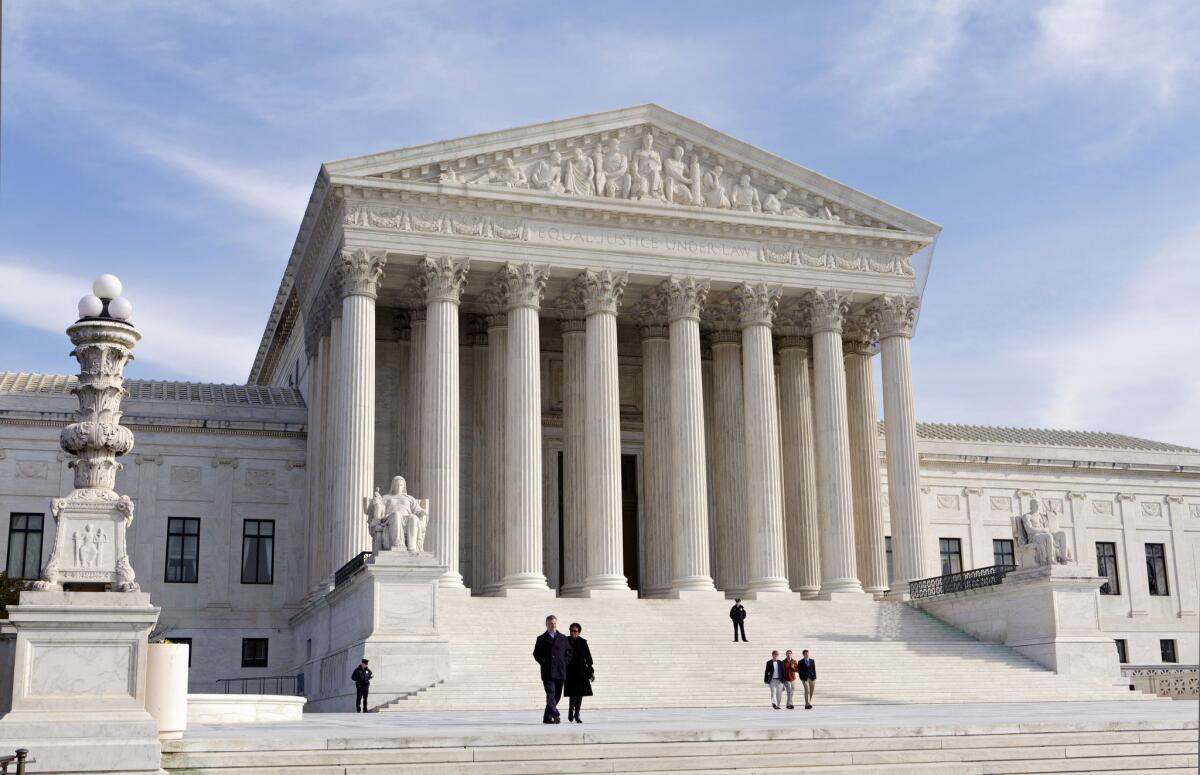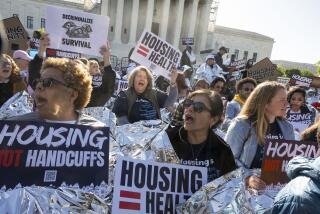Supreme Court appears to lean in favor of allowing searches of motel registries

The Supreme Court justices, hearing arguments in a Los Angeles case, sounded prepared Tuesday to revive a city ordinance that gives the police the authority to regularly check motels’ guest registries without search warrants.
City officials say these routine police checks are needed to combat sex trafficking, prostitution and drug dealing at low-budget motels.
Last year, an appeals court struck down the city’s ordinance as a violation of the 4th Amendment’s ban on unreasonable searches. Scores of cities and the Justice Department joined in support of the city’s appeal and argued that publicly held business records are not protected as if they were private papers.
Most of the justices agreed during comments and questions.
“Innkeepers have been regulated for centuries,” Justice Anthony M. Kennedy told a lawyer representing the motels owners. The law says “you must keep the records,” and law enforcement may check to see if the motel operator is complying, he said.
And the records are usually kept “in a public space” in the lobby of the motel, said Justice Samuel Alito.
But not all agreed it was an easy case. Justices Elena Kagan and Sonia Sotomayor said they were troubled by the possibility of a ruling that would give government officials an unchecked right to demand and inspect the records of any business, whether it is a construction site or doctor’s office.
What if this “free to search” rule were applied broadly to “virtually any public business?” Sotomayor asked.
At one point, Kagan ruffled one of her hunting partners by asking whether a similar rule might be applied to game lodges. Suppose the Fish & Wildlife Service was concerned about illegal hunting and wanted to inspect lodges. “We want surprise inspections ... to see who shot what,” she suggested. Would that be constitutional?
A government lawyer avoided a direct answer and said that would be a harder case. Justice Antonin Scalia, who has taken Kagan hunting on occasion, scowled at her question and leaned forward to observe that private lodges are entirely different from public motels.
Representing the motel owners who sued, Washington attorney Tom Goldstein said they were mostly concerned about “harassment” from the police, including late at night. He said they wanted the right to object and to a hearing before a judge if the searches were too persistent.
Google and several privacy groups supported the motel owners in the case, saying they too worried about a ruling that gives the government the power to demand records about customers.
Lawyers for Los Angeles and the Justice Department successfully pressed the argument that motels are different from other businesses. It has long been understood they must keep guest registries.
“It’s a deterrent. Criminals don’t like to register,” said Joshua Rosenkranz, a lawyer who represented the city of Los Angeles.
Kennedy said he would view the case differently if the police were walking up and down the halls inspecting rooms. The case involves searches of only the registry in the lobby, the justices said.
By the end of the hour, a majority of justices indicated they were inclined to reverse the appeals court decision.
Outside on the court steps, Los Angeles City Atty. Michael Feuer said he thought the argument went well for the city. The justices “were very engaged. It was a provocative conversation,” he said. “And I think we will prevail.”
The court is expected to decide the case, Los Angeles vs. Patel, by the summer.
Twitter: @DavidGSavage
More to Read
Start your day right
Sign up for Essential California for news, features and recommendations from the L.A. Times and beyond in your inbox six days a week.
You may occasionally receive promotional content from the Los Angeles Times.







